Apple : ASHMEADS KERNAL Semi-Dwarf (G969)
$53.95
An old English variety of unparalleled quality from the early 1700’s. This one will fully engage your taste buds! To quote John Bunker “Each bite is an intense, aromatic sting of sharp and sweet, with hints of indescribable, but absolutely wonderful tastes and aftertastes.” Small to medium, greenish-yellow apples with heavy brownish russet have crisp, juicy yellow flesh. A good sharp addition for cider but also great for sauce or dessert. Shows some resistance to scab and mildew. Ripens mid-late October. Store until New Year to reach perfection.
NEEDS A POLLENIZER | ZONE 3 | HARVEST: LATE OCT.
TRIPLOID- Plant with several other varieties.
.
Only logged in customers who have purchased this product may leave a review.
Growing Tips
Besides selecting the most disease resistant varieties, there are
a few simple things to do to have better apples.
- Fertilize under the outer edges of your trees. There are no feeder roots next to the trunk. A well fed tree stays healthier. (Adequate calcium in the soil also helps so that apples keep longer.)
- Pick up fallen fruit and compost, dispose of, or feed to livestock (where possible).
- Rake up leaves in the fall and compost them away from the orchard.
- Prune trees to encourage light and air to reach the inside of the tree.
- Provide bird nesting sites near your orchard. A variety of orchard companion type plants will attract native pollinator insects and also encourage birds to come and eat insect pests.
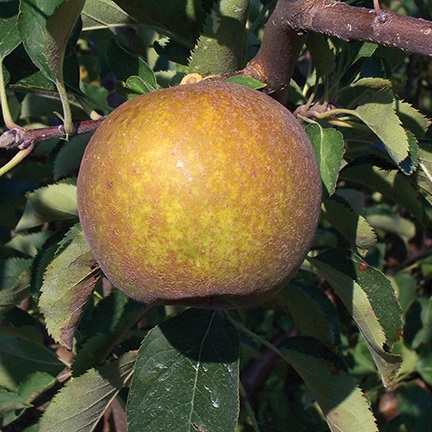
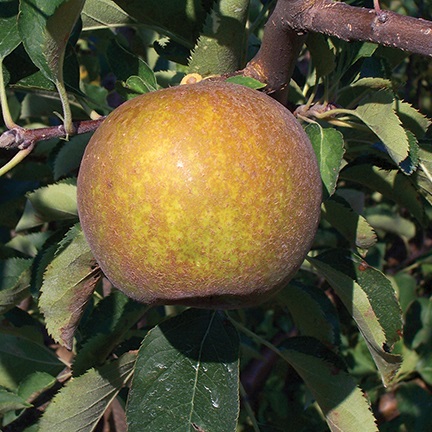
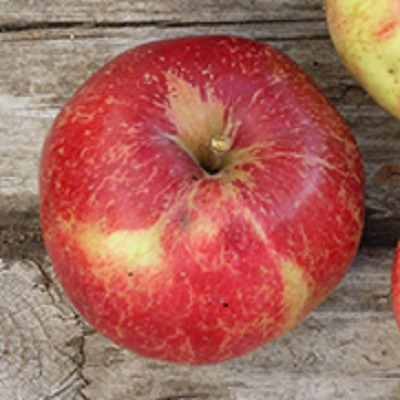
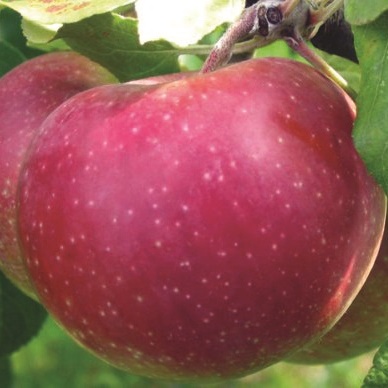
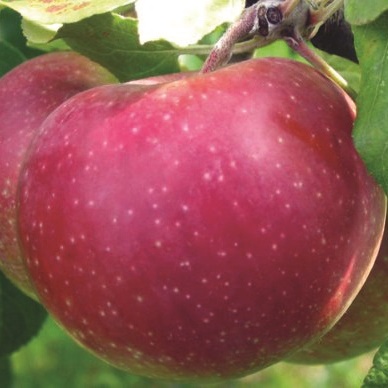
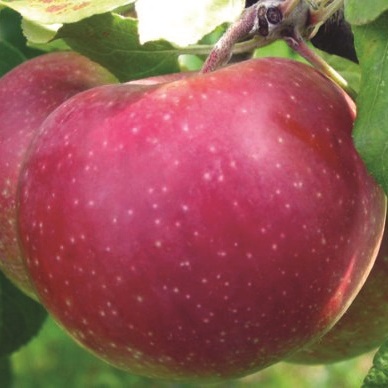
Reviews
There are no reviews yet.